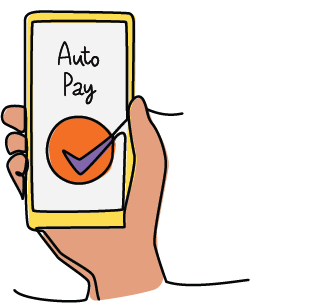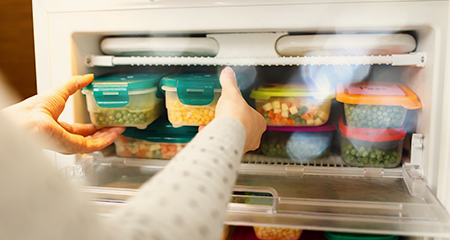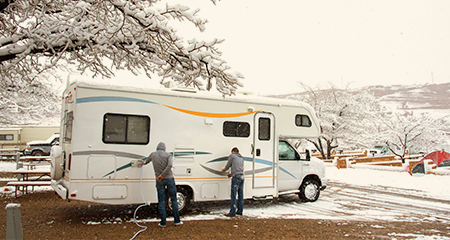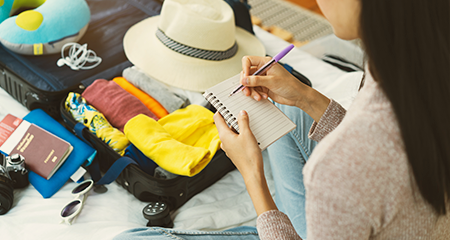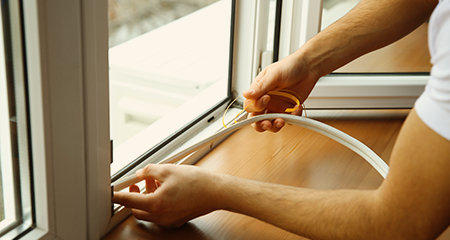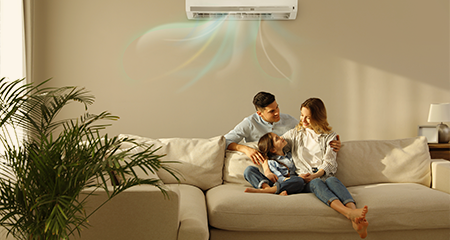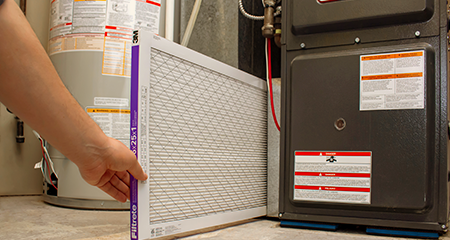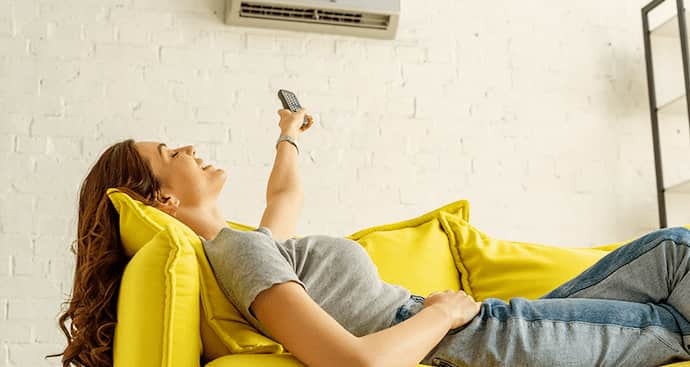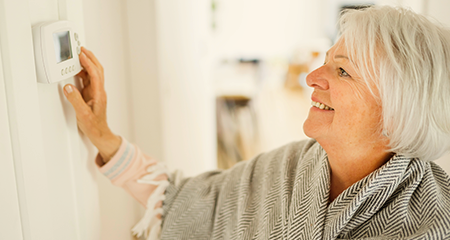Saving energy in the kitchen
Your kitchen uses a lot of energy! Running major appliances, cooking and cleaning – it all adds up! Here are some ways you can save energy in the kitchen:
Using the stove and oven
If you have a gas stove, make sure the flame only reaches the bottom of the pot. If the flame is engulfing your pot, it is wasting energy and can be a fire hazard. In addition, make sure your pot lids fit tightly and keep them on when possible during cooking. A tight-fitting lid will help your food heat quickly while using less energy.
You can also turn off the stovetop burner in the last two to three minutes of cooking time. The residual heat will keep cooking your food without using additional energy. If you want to boil water, consider using an electric kettle instead of a stovetop burner. Electric kettles generally use less energy, and you can keep them running efficiently by cleaning them regularly.
Like an electric kettle, an electric skillet can be more efficient than a stovetop burner. For some meals, it can reduce cooking time and energy use. In addition, use the microwave to heat up leftovers instead of the oven. It uses far less energy.
Turn on the oven light to check your meal instead of opening the door. Opening the door causes heat to escape, and your oven will use more energy to heat up again. You can also turn the oven off for the last ten minutes of cooking. Like the stove burner, that residual heat will finish the job.
Using the fridge and freezer
The most efficient temperatures to set your fridge and freezer are 4°C for the refrigerator and -18 °C for the freezer. If you want to check the temperature, pick up a fridge thermometer at a major appliance dealer.
If you have leftovers, let them cool down on the counter before putting them in the fridge. Putting hot food in the fridge will make it work harder to cool it down, using more electricity.
If you’re buying a new freezer and want to save energy, get a chest freezer instead of an upright model. The door on a chest unit releases less of the freezer's cold air, reducing the energy used to maintain its temperature.
Make the most of your freezer. Match the size of your freezer with your needs. If you can get by with your fridge freezer, unplug your extra deep freezer until you really need it again.
Fill your freezer. Keeping a freezer full uses less energy. Warm air from an opened door will have less space to fill. Any warm air that does get in will be quickly cooled by frozen items already in the freezer. Generally, a full freezer uses more than an empty one because all that frozen food keeps the temperature low.
Using the dishwasher
Depending on your dishwasher, you might not have to rinse your dishes before using it. Make sure you scrape off extra food, put it in, and let the dishwasher do the rest. Learn more ways to save water at home.
Your dishwasher also has a filter that needs to be cleaned regularly. Bits of food and other gunk can get in there and reduce efficiency.
Saving energy in the laundry room
The laundry room also uses a lot of energy. Your washer and dryer consume water and electricity, but there are ways to limit energy use.
Using the washing machine
When washing clothes, use cold water instead of hot or warm water. Using cold water reduces energy use and can help your clothes keep their bright colours longer. If you’re doing an extra dirty load, use the pre-soak cycle instead of washing the clothes twice.
Using the dryer
When drying your clothes, make sure the dryer has a full load. You can combine loads to fill it up and dry clothes of similar weight. And doing your laundry all at once can be an energy-saving hack. You can take advantage of the heat already in the dryer when you do one load after another. Just make sure to clean the dryer’s lint screen after each use. A clogged screen can increase energy use and is also a fire hazard.
If you’re upgrading your clothes dryer, find one with a sensor that automatically turns off the machine when the clothes are dry. This will reduce unnecessary energy use and help you save money.
Read more ways to save energy while doing laundry.
Energy in your home office
Many of us work from home some or all of the time. Saving energy in the workplace is essential, especially if you’re the one paying the bills! Here are some ways you can save energy in your home office:
Unplug electronics
Electronics like computers, monitors, and laptop battery chargers continue to drain energy even when not in use. At the end of your work day, power down your electronics and unplug them. You can also connect them to a power bar so you can switch that off when you’re done and avoid wasting energy.
Set up energy-saving mode.
Setting your office equipment, like your computer, to a ‘power-saving’ setting will allow it to go to sleep mode when not in use. This is helpful if you do not use the computer continuously throughout the day or are in and out of the office. Just make sure you power down completely at the end of the day, as even ‘sleep mode’ saps energy.
Install smart power strips.
Plugging your devices into smart power strips can help reduce energy use. These strips can measure a device’s power level and tell you when it’s in standby mode. Some smart power strips use motion sensors to detect activity and switch the device to standby when there isn’t any. Smart power strips can also turn your equipment on and off, depending on the programming.
Saving energy with your lighting
Simply switching off a light when you leave the room is the easiest way to save energy with your lighting! It’s true that light fixtures and LED bulbs have made home lighting more efficient, but there are still things you can do to reduce electricity use around the home.
Turn off the lights when you’re not in the room.
Okay, we said it again. Turning off lights in rooms no one is using will save energy. Some believe turning lights on and off uses more electricity than just leaving them on, but that’s not the case. Turning off lights and televisions when you leave the room will reduce energy use.
Keep electronics away from the thermostat.
Make sure lamps, TVs, appliances, or other devices are not placed next to your thermostat. When in use, those devices produce heat. Your thermostat could detect that heat and cause your air conditioner to run longer than needed.
Upgrade your lighting.
Upgrading your light fixtures to energy-efficient models and using LED lights will help reduce electricity use. You can also install three-way lamps and dimmer switches. Then, you can lower the lighting to set a cozy ambiance and lower energy use.
Taking the next step
If you’re committed to conserving energy in your home, invest in a professional energy audit. An inspector will check out your home, HVAC system, appliances and other components and let you know where you’re losing energy and how to reduce overall use.
You can also invest in green home upgrades. For example, replacing older windows, upgrading your attic insulation and buying a high-efficiency furnace can drastically improve your home’s energy efficiency.

























